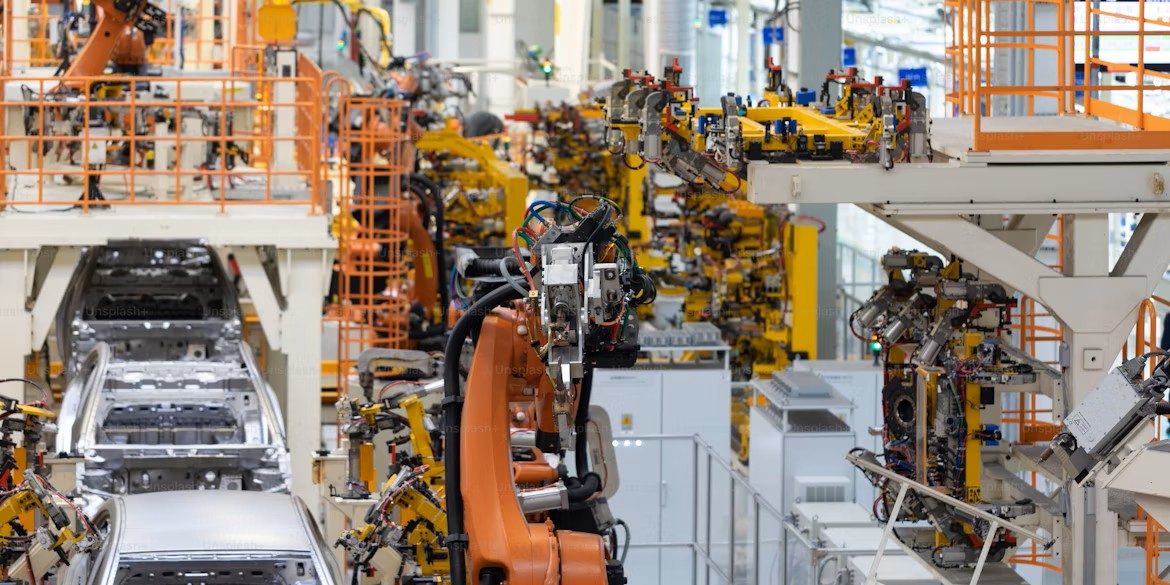Hisashi Takeuchi, Managing Director and CEO of Maruti Suzuki India, presented a compelling vision for India’s future as a global manufacturing leader. In his keynote address at the Automotive Component Manufacturers Association of India (ACMA) annual convention, Takeuchi laid out a roadmap for how India can become a key player in the global manufacturing sector. Despite ongoing global economic challenges, Takeuchi emphasized India’s unique strengths, which position the country as an ideal destination for manufacturing growth. His remarks highlighted the role of both public policy and private sector innovation in realizing India’s potential as a global manufacturing hub.
Takeuchi began by acknowledging the global economic uncertainties that have affected industries worldwide. However, he remained optimistic about India’s prospects, pointing to the country’s vast market, an increasingly skilled workforce, and an improving infrastructure as key factors that will enable India to rise as a manufacturing powerhouse. The government’s support, particularly through initiatives such as Make in India and its focus on labor reforms, has created a favorable business environment that is helping to unlock India’s potential in the manufacturing arena. Takeuchi stressed that stable policies, regulatory reforms, and an open market are critical to ensuring that India can not only maintain its growth trajectory but also solidify its position in global manufacturing networks.
For Maruti Suzuki, Takeuchi’s leadership has been pivotal in expanding the company’s manufacturing footprint, both within India and globally. He emphasized that Maruti Suzuki is focused on enhancing its production capacity to meet rising demand for vehicles in India, as well as increasing its exports to international markets. With India’s middle class growing rapidly, demand for cars continues to rise, and Maruti Suzuki is working to ensure that it can meet these needs by scaling up production capabilities. Takeuchi outlined the company’s commitment to innovation, including a push to ramp up the production of electric vehicles (EVs), in alignment with both global sustainability trends and the Indian government’s push for green energy solutions.
Takeuchi also discussed the critical importance of improving supply chain resilience. He acknowledged the challenges that supply chains face in today’s interconnected world, including disruptions from global events, and how important it is for India to build strong, localized supply networks. Maruti Suzuki has been taking proactive steps to strengthen its supply chains, such as focusing on local sourcing of components and parts. By doing so, the company not only reduces costs but also mitigates risks associated with global supply chain disruptions, a lesson that became particularly apparent during the COVID-19 pandemic. Takeuchi believes that by building a more resilient, self-sustaining supply chain, India can enhance its position within global manufacturing networks, offering greater reliability and flexibility for both domestic and international markets.
India’s growing role in the global production ecosystem is not limited to the automotive sector. Takeuchi highlighted the fact that India is increasingly becoming a hub for diverse industries, ranging from technology to pharmaceuticals and electronics. As these industries grow, the demand for skilled labor is also rising. Takeuchi called for greater investments in education and workforce development, particularly in fields related to technology, engineering, and manufacturing. He believes that a skilled workforce will be essential to maintaining India’s competitiveness in the global market, particularly as industries become more automated and technologically advanced.
Maruti Suzuki’s ongoing investments in workforce training programs reflect this vision. The company has partnered with educational institutions and vocational training programs to ensure that its employees are equipped with the skills necessary to thrive in modern manufacturing environments. Takeuchi also stressed the importance of partnerships between the public and private sectors to support this effort, ensuring that India’s workforce remains prepared for the future of manufacturing.
Read Also: https://jurisreview.com/navigating-mergers-and-acquisitions-legal-strategies-for-corporate-success/
As Takeuchi spoke about Maruti Suzuki’s contributions to India’s manufacturing future, he also highlighted the company’s role in the broader push toward sustainable manufacturing practices. Maruti Suzuki has been increasing its investments in green technologies and environmentally friendly manufacturing processes, including energy-efficient production lines and sustainable sourcing practices. This commitment aligns with India’s larger sustainability goals and the global demand for cleaner, greener products. The company’s focus on electric vehicles is part of this larger strategy, as the shift to EVs represents both an opportunity for growth and a response to global environmental concerns.
Looking to the future, Takeuchi’s vision for India’s role in global manufacturing is clear: India is poised to become one of the world’s leading manufacturing hubs. With its strategic advantages, such as a large consumer market, a growing skilled workforce, and government support for industrial development, India has the potential to become an industrial giant. However, realizing this vision requires continued investment in infrastructure, technological innovation, and education. Takeuchi stressed that the Indian manufacturing sector must continue to evolve and adapt to meet the challenges of a rapidly changing global economy.
Maruti Suzuki’s efforts, under Takeuchi’s leadership, are directly contributing to this transformation. By expanding production capacity, strengthening supply chains, and investing in sustainable technologies, the company is playing a central role in positioning India as a global manufacturing hub. Takeuchi’s address reflected not just a vision for the future but also the steps already being taken to turn that vision into reality. With continued focus on innovation, collaboration, and policy support, India can solidify its place as a key player in the global manufacturing landscape.
In conclusion, India’s path to becoming a global manufacturing leader is well within reach, and Hisashi Takeuchi’s leadership at Maruti Suzuki is helping to steer the country toward this goal. The company’s commitment to expanding its manufacturing capabilities, improving supply chain resilience, and fostering innovation will be essential in driving India’s emergence as a global manufacturing powerhouse in the coming decades. Takeuchi’s strategic vision is not just about the future of Maruti Suzuki but also about the broader future of India’s place in the global economy.

